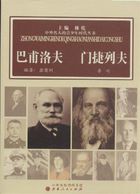Commerce and manufactures can seldom flourish long in any state which does not enjoy a regular administration of justice, in which the people do not feel themselves secure in the possession of their property, in which the faith of contracts is not supported by law, and in which the authority of the state is not supposed to be regularly employed in enforcing the payment of debts from all those who are able to pay.Commerce and manufactures, in short, can seldom flourish in any state in which there is not a certain degree of confidence in the justice of government.The same confidence which disposes great merchants and manufacturers, upon ordinary occasions, to trust their property to the protection of a particular government, disposes them, upon extraordinary occasions, to trust that government with the use of their property.By lending money to government, they do not even for a moment diminish their ability to carry on their trade and manufactures.On the contrary, they commonly augment it.The necessities of the state render government upon most occasions willing to borrow upon terms extremely advantageous to the lender.The security which it grants to the original creditor is made transferable to any other creditor, and, from the universal confidence in the justice of the state, generally sells in the market for more than was originally paid for it.The merchant or monied man makes money by lending money to government, and instead of diminishing, increases his trading capital.He generally considers it as a favour, therefore, when the administration admits him to a share in the first subscription for a new loan.Hence the inclination or willingness in the subjects of a commercial state to lend.
The government of such a state is very apt to repose itself upon this ability and willingness of its subjects to lend it their money on extraordinary occasions.It foresees the facility of borrowing, and therefore dispenses itself from the duty of saving.
In a rude state of society there are no great mercantile or manufacturing capitals.The individuals who hoard whatever money they can save, and who conceal their hoard, do so from a distrust of the justice of government, from a fear that if it was known that they had a hoard, and where that hoard was to be found, they would quickly be plundered.In such a state of things few people would be able, and nobody would be willing, to lend their money to government on extraordinary exigencies.The sovereign feels that he must provide for such exigencies by saving because he foresees the absolute impossibility of borrowing.This foresight increases still further his natural disposition to save.
The progress of the enormous debts which at present oppress, and will in the long-run probably ruin, all the great nations of Europe has been pretty uniform.Nations, like private men, have generally begun to borrow upon what may be called personal credit, without assigning or mortgaging any particular fund for the payment of the debt; and when this resource has failed them, they have gone on to borrow upon assignments or mortgages of particular funds.
What is called the unfunded debt of Great Britain is contracted in the former of those two ways.It consists partly in a debt which bears, or is supposed to bear, no interest, and which resembles the debts that a private man contracts upon account, and partly in a debt which bears interest, and which resembles what a private man contracts upon his bill or promissory note.The debts which are due either for extraordinary services, or for services either not provided for, or not paid at the time when they are performed, part of the extrordinaries of the army, navy, and ordnance, the arrears of subsidies to foreign princes, those of seamen's wages, etc., usually constitute a debt of the first kind, sometimes in payment of a part of such Navy and exchequer bills, which are issued sometimes in payment of a part of such debts and sometimes for other purposes, constitute a debt of the second kind- exchequer bills bearing interest from the day on which they are issued, and navy bills six months after they are issued.The Bank of England, either by voluntarily discounting those bills at their current value, or by agreeing with government for certain considerations to circulate exchequer bills, that is, to receive them at par, paying the interest which happens to be due upon them, keeps up their value and facilitates their circulation, and thereby frequently enables government to contract a very large debt of this kind.In France, where there is no bank, the state bills (billets d'etat) have sometimes sold at sixty and seventy per cent discount.During the great recoinage in King William's time, when the Bank of England thought proper to put a stop to its usual transactions, exchequer bills and tallies are said to have sold from twenty-five to sixty per cent discount; owing partly, no doubt, to the supposed instability of the new government established by the Revolution, but partly, too, to the want of the support of the Bank of England.
When this resource is exhausted, and it becomes necessary, in order to raise money, to assign or mortgage some particular branch of the public revenue for the payment of the debt, government has upon different occasions done this in two different ways.Sometimes it has made this assignment or mortgage for a short period of time only, a year, or a few years, for example; and sometimes for perpetuity.In the one case the fund was supposed sufficient to pay, within the limited time, both principal and interest of the money borrowed.In the other it was supposed sufficient to pay the interest only, or a perpetual annuity equivalent to the interest, government being at liberty to redeem at any time this annuity upon paying back the principal sum borrowed.When money was raised in the one way, it was said to be raised by anticipation; when in the other, by perpetual funding, or, more shortly, by funding.















